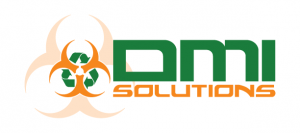Call us anytime
+1 800-455-7747
Email Us
Call us anytime
Email Us
Medical wastes include various categories of waste, and one of them is medical objects contaminated with bodily fluids. These materials are biohazardous waste and can pose a serious risk to living beings and the environment.
In the US, the local and state regulations mandate the safe management and disposal of these waste items.
A few common questions are “Whether all bodily fluids are considered medical waste,” or “All bodily fluids can be infectious?”
A human body can produce as many as eleven bodily fluids as a part of the normal function of the body.
Many of these bodily fluids can transmit and infect other humans with serious diseases, such as Hepatitis B and HIV, when an individual gets accidentally exposed to them.
All bodily fluids that contain visible traces of blood are potentially hazardous, even if they are low-risk fluids.
Different bodily fluids carry different levels of infection risk. If we go by the concept of Universal Precautions, specific bodily fluids are likely to be more hazardous than others. Some of the high-risk bodily fluids are below:
Bodily fluids with low risk may not carry the same threat of infection. Some of these fluids are:
Low-risk bodily fluids may also carry a high risk if it is impossible to figure out if the fluids got mixed up or which categories of fluids are present.
Bodily fluids produce medical waste in various forms that healthcare professionals and staff may encounter depending on the nature of contamination.
Although the terms such as biohazardous waste and infectious waste are often used interchangeably, they are different.
Biohazardous waste may contain potentially transmissible or infectious agents. It means infectious waste a form of biohazardous waste.
Infectious waste can infect another human whether the material is semi-liquid, liquid, or dry.
Infectious waste is a medical waste that includes:
Waste can be in the category of medical waste even without carrying any bodily fluids or pathogens. But when any of those is present, the medical waste is considered regulated waste.
Regulated waste may include contaminated sharps and items carrying dried fluids, which may cause an infection.
Healthcare facilities across the US produce large quantities of medical waste every day, including contaminated liquid waste such as blood and other bodily fluids. It is crucial to handle, store, and dispose of the waste properly to prevent accidental exposure to doctors, staff, patients, and visitors.
Improper storage and disposal of liquid wastes can pose the risks of leakage or spill, which could result in exposure to viruses, transmissible diseases, and other hazardous pathogens.
Besides, it will put a healthcare organization in the line of fire of the state health department and get penalized with hefty fines for violations. The steps for proper storage and disposal of liquid waste are below:
When managing liquid medical waste, it is always better to tread with caution. A professional medical waste management company can help you create a consistent and safe waste disposal process to keep your staff safe and compliant.
One of the key aspects of staying compliant and keeping the employees and visitors safe is to conduct an ongoing training program.
Healthcare employees at all levels need to understand and follow the practice of safe handling, storing, and disposing of medical waste produced in the facility, including liquid waste.
The training modules should include the mandatory regulations by various state and federal agencies, such as FDA, OSHA, and the EPA. New joiners must receive this training during their onboarding process.
Another high priority for healthcare organizations is having a regular medical waste pick-up schedule in place.
A licensed medical disposal service provider should be responsible for picking, transporting, and disposing liquid and other medical waste. It prevents the storage containers from getting overfilled, which helps avoid accidental spills.
When adhering to state and federal regulations regarding proper medical waste management, getting professional help is ideal.
DMI Solutions offers meticulous medical waste storage, disposal, and treatment for all kinds of healthcare facilities. We also impart training to staff.
Contact us at +1 800-455-7747, or send an email to info@dmisolutionsinc.com for more details.

© Copyright 2020 by DMI Solutions INC